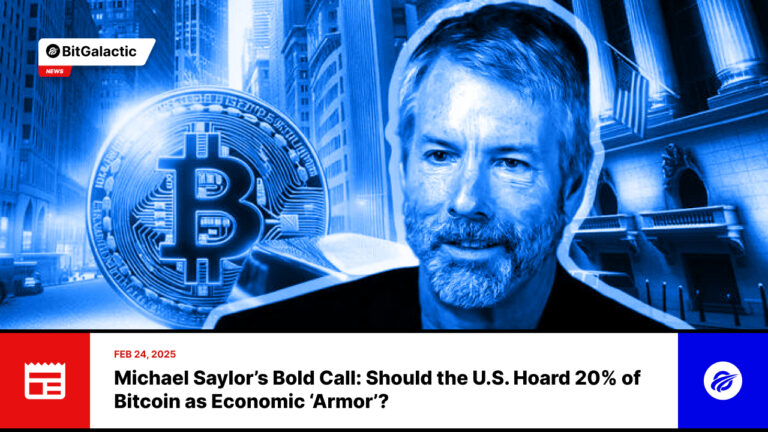Michael Saylor’s Bold Call: Should the U.S. Hoard 20% of Bitcoin as Economic ‘Armor’?
Michael Saylor, co-founder of Strategy (formerly MicroStrategy), made waves at the Conservative Political Action Conference (CPAC) this week, advocating for the U.S. to hold 20% of the total Bitcoin supply as a form of national economic defense. He positioned Bitcoin as the ultimate safeguard against inflation and financial instability.
Bitcoin as the Backbone of Economic Sovereignty
Saylor’s speech emphasized Bitcoin’s immutable nature, calling it the “most powerful technology force for conservatism in the world.” He argued that its decentralized framework and fixed supply exemplify financial sovereignty and integrity, traits that traditional fiat currencies fail to uphold.
“What freedom do you really have if your money is tied to a currency where the government can print four times more of it at will, rendering its value meaningless?” Saylor questioned, highlighting the risks of unchecked monetary expansion.
The Case for a U.S. Bitcoin Reserve
Saylor proposed a radical shift—one that would see the U.S. securing 20% of Bitcoin’s total supply. According to him, such a move would bolster the strength of the U.S. dollar and fortify the nation’s wealth. His company, Strategy, has already amassed nearly 480,000 BTC, pioneering what many call the “Saylor Effect” by demonstrating corporate adoption at an unprecedented scale.
This idea isn’t just theoretical. Policymakers like Senator Cynthia Lummis have expressed support for a Bitcoin-backed financial strategy, viewing it as a hedge against mounting fiscal deficits.
BitGalactic’s Take: A Game-Changer or a Risky Gamble?
At BitGalactic, we see both the promise and peril of Saylor’s vision. On one hand, Bitcoin’s decentralized nature makes it resistant to government manipulation, potentially serving as a hedge against excessive money printing. If the U.S. were to adopt such a reserve strategy, it could solidify the nation’s financial position amid global economic uncertainty.
However, the flip side raises concerns. Would such massive Bitcoin adoption trigger geopolitical tensions, as other nations race to accumulate their own reserves? Could excessive government involvement in Bitcoin contradict its core ethos of decentralization?
Regardless, one thing is clear—Saylor’s proposal is sparking conversations at the highest levels, and the idea of a U.S. Bitcoin reserve is no longer science fiction. Whether this vision materializes or not, it’s a testament to Bitcoin’s growing influence in shaping global finance.
Share this post


